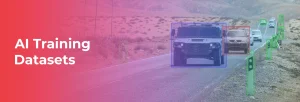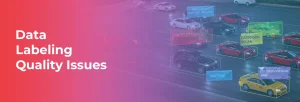- What is Sensor Data Engineering (and Why Does it Matter)?
- How Data Scientists, Tech Engineers, and IoT Innovators Drive This Space
- Overcoming Key Challenges in Sensor Data Engineering
- Why Quality Sensor Data is Vital for Decision-Making
- Best Practices in Sensor Data Engineering
- The Future of Sensor Data Engineering
Why Your Business Needs Sensor Data Engineering Services Now
Sensors are everywhere. They’re in the devices we hold, the cars we drive, and even the homes we live in. These little tech wonders continuously collect data, offering real-time insights into the world around us. But here’s the thing—sensor data is only as valuable as what you do with it. That’s where sensor data engineering services come into play.
Whether you’re a data scientist crunching numbers, a tech engineer building smarter systems, or an IoT innovator creating next-gen devices, sensor data is your ticket to creating meaningful, actionable solutions.
This blog dives into the fascinating world of sensor data engineering services, exploring its significance, challenges, best practices, and future trends. By the end, you’ll understand why this field is a game-changer for industries worldwide—and how companies like Macgence are helping lead the charge.
What is Sensor Data Engineering (and Why Does it Matter)?
Sensor data engineering is centered around collecting, processing, and analyzing data generated by sensors to turn it into actionable intelligence. From optimizing supply chains to enabling predictive maintenance, it touches virtually every industry.
For example, in healthcare, wearable devices send real-time vitals to hospitals, helping doctors monitor patients remotely. Meanwhile, in agriculture, sensors monitor soil conditions, improving crop yields. And in smart cities, sensor data powers everything from traffic control to energy optimization.
Without sensor data engineering services, this data would be an untapped goldmine—sitting unused, unstructured, and incapable of delivering results. Organizations that harness it efficiently gain a massive competitive edge in innovation and decision-making.
How Data Scientists, Tech Engineers, and IoT Innovators Drive This Space
Sensor data engineering isn’t a one-person job—it takes a team of brilliant minds from different fields to make it work.
- Data Scientists: These professionals clean, analyze, and model sensor data to extract insights. They use machine learning and AI to unlock trends that help businesses make informed decisions.
- Tech Engineers: These are the builders, creating the hardware and software systems that handle sensor data collection and processing.
- IoT Innovators: IoT pioneers are the visionaries connecting physical devices to the digital world, ensuring seamless communication between sensors and analytical platforms.
When these experts collaborate effectively, magic happens. Imagine wearables that predict health issues before they occur, or manufacturing setups so efficient they practically run themselves.
Overcoming Key Challenges in Sensor Data Engineering
Of course, managing sensor data isn’t all smooth sailing. Some of the top challenges include:
1. Data Quality Issues
Sensors don’t always provide perfect data. Environmental factors, technical glitches, or aging devices can create inaccuracies. To overcome this, data cleaning and validation techniques are essential. Platforms like Macgence provide robust data pipelines to ensure high-quality outputs.
2. Data Volume
Sensors can collect massive amounts of data every minute. Organizing and storing it effectively is key to scaling operations. Utilizing cloud storage and scalable data architectures helps manage these enormous datasets seamlessly.
3. Real-Time Processing
Industries like autonomous vehicles or healthcare need instant insights. Implementing edge computing ensures that data processing happens close to the source, reducing latency and enabling quick decision-making.
Mastering these challenges means turning what could be overwhelming into scalable solutions that deliver lasting business value.
Why Quality Sensor Data is Vital for Decision-Making
The importance of high-quality sensor data cannot be overstated. Poor data leads to poor decisions—a nightmare scenario for any business.
Case in point? Imagine a logistics company using faulty sensor data to track shipments. A single error in location tracking could cause delays, lost goods, and unhappy customers. On the flip side, accurate sensor data can create efficiency, maximize profits, and build customer trust.
Companies like Macgence excel at building processes to refine raw sensor data so it delivers reliable insights for decision-making.
Best Practices in Sensor Data Engineering

When it comes to sensor data engineering, following best practices ensures reliable, scalable results.
1. Streamlined Data Collection
Choose sensors suited to your specific use case. Define clear metrics to capture useful data—avoiding unnecessary noise that can slow down processing.
2. Effective Storage Solutions
Invest in cloud platforms or hybrid models to store growing datasets efficiently. Ensure your storage systems are secure, scalable, and accessible for real-time access.
3. Efficient Processing Workflows
Use advanced tools for data cleansing, transformation, and aggregation. Custom solutions from providers like Macgence can speed up your workflows without compromising quality.
4. Actionable Visualization
Communicating data visually is key to making it useful for decision-makers. Use dashboards, graphs, and real-time monitoring tools that highlight trends and anomalies at a glance.
The Future of Sensor Data Engineering
Sensor technology and data engineering are evolving rapidly. Here are a few exciting trends shaping their future:
- 5G Connectivity: Faster communication between sensors and systems is paving the way for even more real-time applications like autonomous cars and smart cities.
- AI-Powered Edge Computing: AI at the edge allows even faster processing of sensor data, improving response times and reducing reliance on centralized systems.
- Sustainable Engineering: Eco-friendly sensor designs and energy-efficient data centers will play a big role in making sensor data engineering greener.
These advancements will push industries closer to fully autonomous systems, enabling breakthroughs we’ve only dreamed about.
It’s Time to Elevate Your Sensor Data Strategy
Sensor data engineering isn’t just a tech buzzword—it’s the backbone of innovation for industries across the globe. From improving operational efficiency to creating life-changing solutions, it’s an area ripe with opportunities.
If you’re looking to harness the power of sensor data, Macgence is here to help. Our services provide high-quality, structured data that supports AI/ML models, helping you stay ahead of the curve.
Curious to learn more? Contact us today or explore our services to discover how we can help transform your sensor data into actionable results.
FAQs
Ans: – Sensor data engineering involves collecting, processing, and analyzing data from sensors to turn it into actionable insights. It’s commonly used across industries like healthcare, agriculture, and smart cities.
Ans: – Macgence employs robust data cleaning, validation, and structuring methods to ensure all sensor data meets the highest quality standards before being processed or analyzed.
Ans: – Absolutely! Sensor data engineering can streamline processes, reduce costs, and improve decision-making for businesses of any size.
You Might Like
February 18, 2026
Prebuilt vs Custom AI Training Datasets: Which One Should You Choose?
Data is the fuel that powers artificial intelligence. But just like premium fuel vs. regular unleaded makes a difference in a high-performance engine, the type of data you feed your AI model dictates how well it runs. The global market for AI training datasets is booming, with companies offering everything from generic image libraries to […]
February 17, 2026
Building an AI Dataset? Here’s the Real Timeline Breakdown
We often hear that data is the new oil, but raw data is actually more like crude oil. It’s valuable, but you can’t put it directly into the engine. It needs to be refined. In the world of artificial intelligence, that refinement process is the creation of high-quality datasets. AI models are only as good […]
February 16, 2026
The Hidden Cost of Poorly Labeled Data in Production AI Systems
When an AI system fails in production, the immediate instinct is to blame the model architecture. Teams scramble to tweak hyperparameters, add layers, or switch algorithms entirely. But more often than not, the culprit isn’t the code—it’s the data used to teach it. While companies pour resources into hiring top-tier data scientists and acquiring expensive […]




